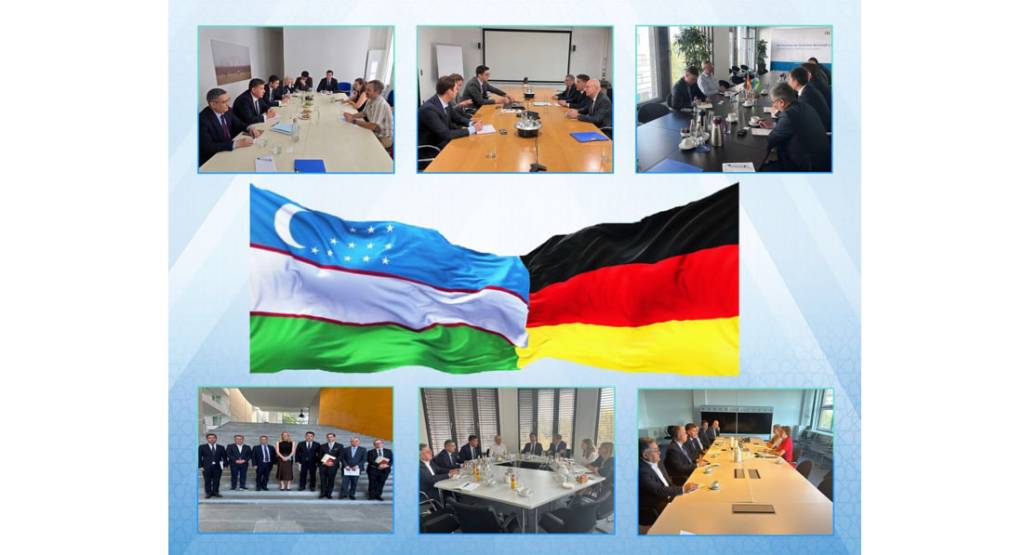WNAM REPORT: On 2-4 September this year, the Uzbekistan delegation, which included the heads and leading analysts of ISRS, IMRS, IACIR, IICA, and the Bureau of Uzbekistan – Germany Business Cooperation, visited Berlin.
Meetings and consultations were held in Germany’s capital with representatives of the offices of the Federal President and Federal Chancellor, the Federal Foreign Office, Federal Ministries for the Environment, Economic Cooperation and Development, the Committee on Eastern European Economic Relations, the political foundations of Konrad Adenauer and Friedrich Ebert, and several think tanks.
Views were exchanged on developing comprehensive practical cooperation between Uzbekistan and Germany and multilateral interaction in the “Central Asia – Germany” format.
The experts comprehensively analyzed the process of regional cooperation in Central Asia and the current challenges facing the countries. German experts highly appreciated the efforts undertaken by the President of Uzbekistan and other Central Asian leaders to build good-neighborly and friendly relations aimed at ensuring stable and sustainable development of the region. The result of such a policy was the transformation of Central Asia into an attractive growing market, a center of attraction for investment and political and economic activity.
Separately, the German side was informed about the preparations for the upcoming parliamentary elections in Uzbekistan, which will be held under a new mixed system aimed at strengthening the role of parties and parliament in the country’s socio-political life and the development and implementation of the domestic and foreign policy agenda.
Considering the progress in collaboration, the experts paid particular attention to developing new ideas, recommendations, and proposals for further joint projects in the political-diplomatic, trade-economic, and cultural-humanitarian sectors.
Opportunities in green development, renewable energy, transport and logistics, industrial cooperation, technology transfer and support for innovation, healthcare and education, and human capital development were considered.
Following the visit, prospects for enhancing scientific cooperation and conducting joint research were outlined. A schedule of significant events on the current international and regional issues was agreed upon.


